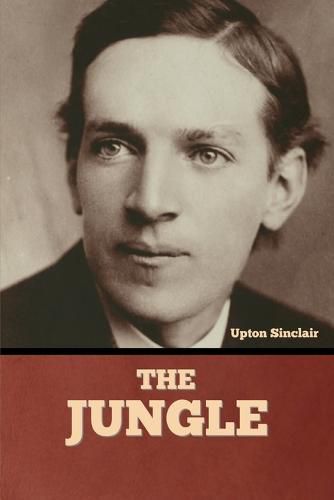Readings Newsletter
Become a Readings Member to make your shopping experience even easier.
Sign in or sign up for free!
You’re not far away from qualifying for FREE standard shipping within Australia
You’ve qualified for FREE standard shipping within Australia
The cart is loading…






This title is printed to order. This book may have been self-published. If so, we cannot guarantee the quality of the content. In the main most books will have gone through the editing process however some may not. We therefore suggest that you be aware of this before ordering this book. If in doubt check either the author or publisher’s details as we are unable to accept any returns unless they are faulty. Please contact us if you have any questions.
The Jungle is a 1906 novel by the American journalist and novelist Upton Sinclair (1878-1968). The novel portrays the harsh conditions and exploited lives of immigrants in the United States in Chicago and similar industrialized cities. Sinclair's primary purpose in describing the meat industry and its working conditions was to advance socialism in the United States. However, most readers were more concerned with several passages exposing health violations and unsanitary practices in the American meat packing industry during the early 20th century, which greatly contributed to a public outcry which led to reforms including the Meat Inspection Act.
The book depicts working-class poverty, lack of social supports, harsh and unpleasant living and working conditions, and hopelessness among many workers. These elements are contrasted with the deeply rooted corruption of people in power. A review by the writer Jack London called it "the Uncle Tom's Cabin of wage slavery."
Sinclair was considered a muckraker, a journalist who exposed corruption in government and business. In 1904, Sinclair had spent seven weeks gathering information while working incognito in the meatpacking plants of the Chicago stockyards for the socialist newspaper Appeal to Reason. He first published the novel in serial form in 1905 in the newspaper, and it was published as a book by Doubleday in 1906. (wikipedia.org)
$9.00 standard shipping within Australia
FREE standard shipping within Australia for orders over $100.00
Express & International shipping calculated at checkout
This title is printed to order. This book may have been self-published. If so, we cannot guarantee the quality of the content. In the main most books will have gone through the editing process however some may not. We therefore suggest that you be aware of this before ordering this book. If in doubt check either the author or publisher’s details as we are unable to accept any returns unless they are faulty. Please contact us if you have any questions.
The Jungle is a 1906 novel by the American journalist and novelist Upton Sinclair (1878-1968). The novel portrays the harsh conditions and exploited lives of immigrants in the United States in Chicago and similar industrialized cities. Sinclair's primary purpose in describing the meat industry and its working conditions was to advance socialism in the United States. However, most readers were more concerned with several passages exposing health violations and unsanitary practices in the American meat packing industry during the early 20th century, which greatly contributed to a public outcry which led to reforms including the Meat Inspection Act.
The book depicts working-class poverty, lack of social supports, harsh and unpleasant living and working conditions, and hopelessness among many workers. These elements are contrasted with the deeply rooted corruption of people in power. A review by the writer Jack London called it "the Uncle Tom's Cabin of wage slavery."
Sinclair was considered a muckraker, a journalist who exposed corruption in government and business. In 1904, Sinclair had spent seven weeks gathering information while working incognito in the meatpacking plants of the Chicago stockyards for the socialist newspaper Appeal to Reason. He first published the novel in serial form in 1905 in the newspaper, and it was published as a book by Doubleday in 1906. (wikipedia.org)